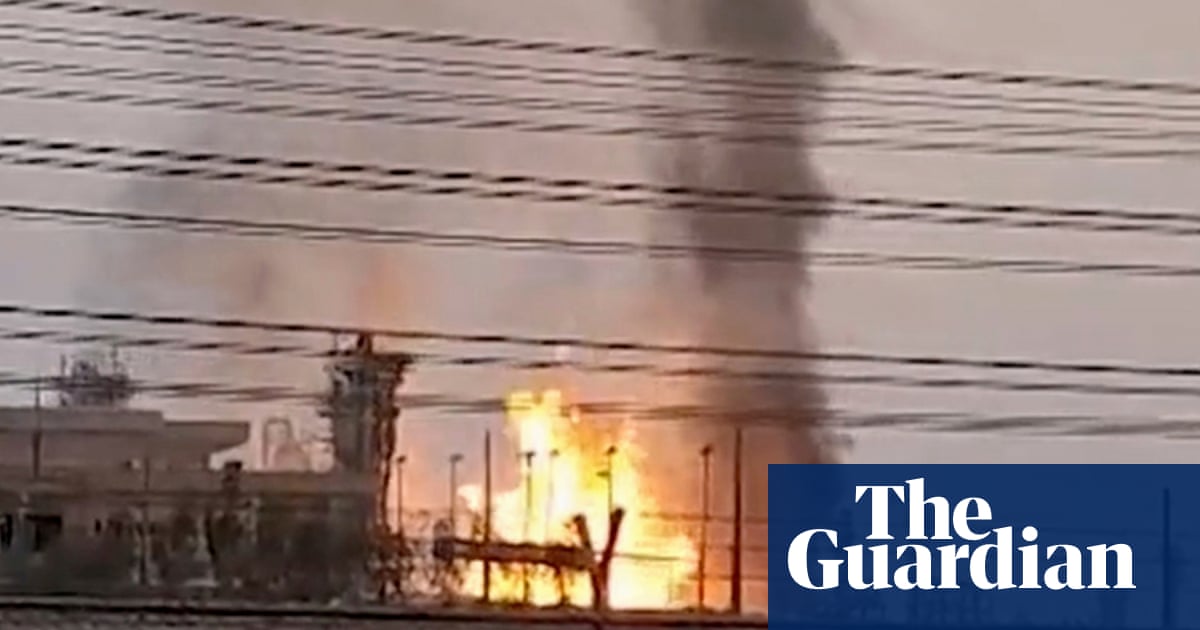Iran’s foreign minister has accusedIsraelof seeking to expand the war beyond Iran by attacking a major gas facility in Bushehr province on the Gulf coast.
Speaking to diplomats in his first public appearance since the initial Israeli strikes, Abbas Araghchi said: “Dragging the conflict into the Persian Gulf is a strategic mistake and its goal is to drag the war outside Iranian territory. Any military development in this region can affect the entire world.”
He was referring to the strike on a facility operating at South Pars, located offshore near Iran’s southern Bushehr province. The field supplies about 70% of Iran’s domestic natural gas.
The South Pars/North Dome mega-field is the largest known gas reserve in the world. Iran, which shares the field with Qatar, has been developing its side since the late 1990s.
Iranian media reported on Saturday a “massive explosion” and fire after an Israeli drone targeted one of the South Pars facilities.
Araghchi added that Iran blamed the US for allowing Israel to start the war with Iran, but at present its conflict was confined to Israel, and Iran would not expand it to neighbouring countries, or to US facilities.
“Over the past two days, we have received messages from the US through various channels claiming that they were not and will not be involved in this attack,” he said. “However, we do not believe this claim, because we have evidence to the contrary.
“If the US government really makes such a claim, it should clearly and publicly state its position. Sending a private message is not enough.”
On Friday,Israel launched a large-scale attack on Iran, killing top military commanders and nuclear scientists, and striking military bases, nuclear sites and residential areas across the country.
Iran has since unleashed a deadly barrage ofmissile strikes on Israel, leaving at least 10 Israelis dead overnight Sunday and dozens more wounded.
“It is necessary for the US government to clearly condemn the attack on nuclear facilities,” Iran’s leading diplomat said. “Such an action must be condemned from the perspective of international law.”
Araghchi was explaining why talks due with the US in Oman on Sunday had been cancelled, as well as justifying the Iranian response to Israel’s attacks as legitimate self-defence.
He also disclosed that Tehran had asked for an emergency board meeting of the UN nuclear inspectorate the International Atomic Energy Agency (IAEA) on Monday at which Iran plans to raise the Israeli attack on its Natanz nuclear facility.
He said Iran had not intended to target Israeli economic positions, but had been forced to do so on the second day in response to attacks on its oil installations.
Iranian foreign ministry sources believe Israel has clearly set out that its plan is to secure political regime change in Tehran, and it would be up to other European powers to say whether they agree with such steps.
In his Tehran briefing, Araghchi thanked countries that had condemned the Israeli attack but said “there are countries in Europe that claimed to be civilised and adhere to international law, but instead of condemning Israel, have condemned Iran”.
He also said he had requested a meeting of the IAEA on Monday after Israel’s attack on the Natanz nuclear facility.
